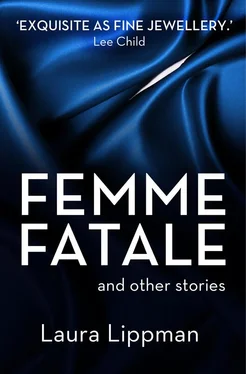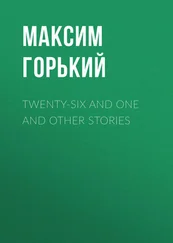My husband’s first wife almost spent him into bankruptcy. Twice. I am a little hazy about the details, as was he. I don’t think it was a real bankruptcy, with court filings and ominous codes on his credit history. Credit was almost too easy for us to get. The experience may have depleted his savings, for he didn’t have much in the bank when we married. But whatever happened, it scared him badly, and he was determined it would never happen again.
To that end, he was strict about the way we spent money in our household, second-guessing my purchases, making up rules about what we could buy. Books, for example. The rule was that I must read ten of the unread books in the house—and there were, I confess, many unread books in the house—before I could bring a new one home. We had similar rules about compact discs (“Sing a song from the last one you bought,” he bellowed at me once) and shoes (“How many pairs of black shoes does one woman need?”). It was not, however, a two-way street. The things he wanted proved to be necessities—defensible, sensible purchases. A treadmill, a digital camera, a DVD player and, of course, the DVDs to go with it. Lots of Westerns and wars.
But now I sound like him, sour and grudging. The irony was, we both made good money. More correctly, he made decent money, as a freelance technical writer, and I made great money, editing a loathsome city magazine, the kind that tells you where to get the best food/doctors/lawyers/private schools/flowers/chocolates/real estate. It wasn’t journalism, it was marketing. That’s why they had to pay so well.
Because I spent my days instructing others how to dispose of their income, I seldom shopped recreationally. I didn’t even live in the city whose wares I touted, but in a strange little suburb just outside the limits. Marion was an unexpectedly pretty place, hidden in the triangle created by three major highways. It should have been loud. It wasn’t. It was quiet, almost eerily so, except when the train came through. Our house was a Victorian, pale green, restored by the previous owners. It needed nothing, which seemed like a blessing at first but gradually became unsettling. Houses were supposed to swallow up time and money and effort, but ours never required anything. We were childless, although we had a dog. When my husband found the house and insisted we move from the city, I had consoled myself by thinking the new place would absorb the energy I never got to put into raising a family. But its only demand came on the first of the month, when I wrote the mortgage check.
One day last January, I came home and tossed a bag on the kitchen table. White, with a black-blue logo, it was from the local bookstore. Christmas was past, no one’s birthday was on the calendar. I had no excuse for buying a book. I hadn’t read anything in weeks, much less the required ten. Which is not to say I always obeyed the rules. I broke them all the time but was careful to conceal this fact, smuggling in purchases in the folds of my leather tote, letting them blend with what we already owned until they took on a protective coloring. “This sweater? I’ve had it forever.” “That book? Oh, it was a freebie, came to the office by mistake.”
But on this particular January day, I came through the kitchen door after dark, let the dog leave footprints over my winter white wool coat, and threw the bag down so it landed with a noticeable smacking sound. My husband, who was preparing dinner, walked over to the table and opened the bag. It contained a first novel, plump and mushy with feeling. I steeled myself for his response, which could range anywhere from snide to volcanic. I was prepared to tell him it was collectible, that this first edition would be worth quite a bit if the writer lived up to the ridiculous amounts of praise heaped on him.
But all my husband said was, “That looks good,” and went back to his sauce.
Over the next few weeks, I brought more things home. CDs, which I didn’t even bother to remove from their silky plastic wrapping. More books. A new winter coat, a red one with a black velvet collar and suede gloves to match. Moss green high heels, a silk scarf. He approved of everything, challenged nothing. He began to think of other things we could buy, things we could share. Season tickets to the opera? Sure. A new rug for the dining room? Why not. Built-in bookshelves? Of course.
One night in bed he asked: “Are you happy?”
“I’m not unhappy.”
“That’s what you always say.”
True.
“Why can’t you talk to me?”
“Because when I tell you what I feel or what I’m thinking, you tell me I’m wrong. You tell me I don’t know my own mind. I’d rather not talk at all than hear that.”
“You don’t know what you want.”
This was true.
“You were a mess when I met you.”
This was not.
“Everything you’ve accomplished is because of me.”
“But,” I pointed out, “I haven’t actually accomplished anything.”
“Are you going to leave me?”
I gave the most honest answer I dared. “I don’t know yet.”
He threw himself out of bed and ran downstairs. I went after him, found him in the kitchen, pouring bourbon into a stout glass of smoky amber. He had not approved of those glasses when I bought them, but he used them all the time. He finished his drink in two gulps, poured another. I got a bottle of white wine from the refrigerator and sat with him.
“Do whatever you have to do,” he said at last. “But understand, there will be consequences.”
“Consequences?” I assumed he meant financial ones, perhaps even a blow to my reputation. In my circle of friends and business associates, I was famous for being happily married, if only because that was the version I insisted on. His absence made it an easy illusion to sustain. Although I had to socialize a lot, because of my job, my husband never came along. He liked to say I was the only person whose company he craved. He thought this was romantic.
“You will come home one day, and there will be blood all over the walls,” he continued, not unpleasantly. “I’ll kill myself if you leave. I can’t live without you.”
“Don’t say that.”
“Why not? It’s just the truth. If you don’t want to live with me, then I don’t want to live.”
“You’re threatening me.”
“I’m threatening myself.”
“A person who would kill himself has no respect for life. It’s not a big leap, from killing yourself to killing someone else.”
“I’d never hurt you. You know that.”
We stayed up all night, talking and drinking, debating. We had done this in happier times, taking the opposite sides on less loaded topics. He demanded to know how he had disappointed me. I couldn’t find any real answers. A few minutes ago, I had been not unhappy, but I had assumed my condition was my fault. Now, all I could think was that I was a prisoner. A thug was threatening the life of someone I loved, had taken him hostage. That thug was my husband, my husband was his hostage. I was trapped.
But then, I had always been trapped. By my job, which I hated, and by this house, whose only requirement was that we make as much next year as we did last year. I could give up books and CDs and coats with velvet collars, but those economies of scale would make no difference. Like everyone else we knew, we were addicts. We were hooked on our income. He was hooked on my income. My servitude made his freedom possible. I wanted to be a freelancer, too, to leave the world of bosses and benefits. One day, he promised, one day. And then we bought the house.
I couldn’t talk about this, for some reason. Pressed for the concrete reasons of my discontent, I couldn’t say anything, except to complain about the train, the drag of commuting. We had only one car, so I took the local train to work, which jounced and jolted, making five stops in eleven miles. It was wonderful in the morning, the paper in my lap, a travel mug of my own coffee in hand. But the last train on this line left the city at 7:30. At day’s end, I always felt as if I was on the run, a white-collar criminal returning to my halfway house. I talked about the train until three or four in the morning, until my eyes dropped with sleep, his with boredom and bourbon.
Читать дальше












